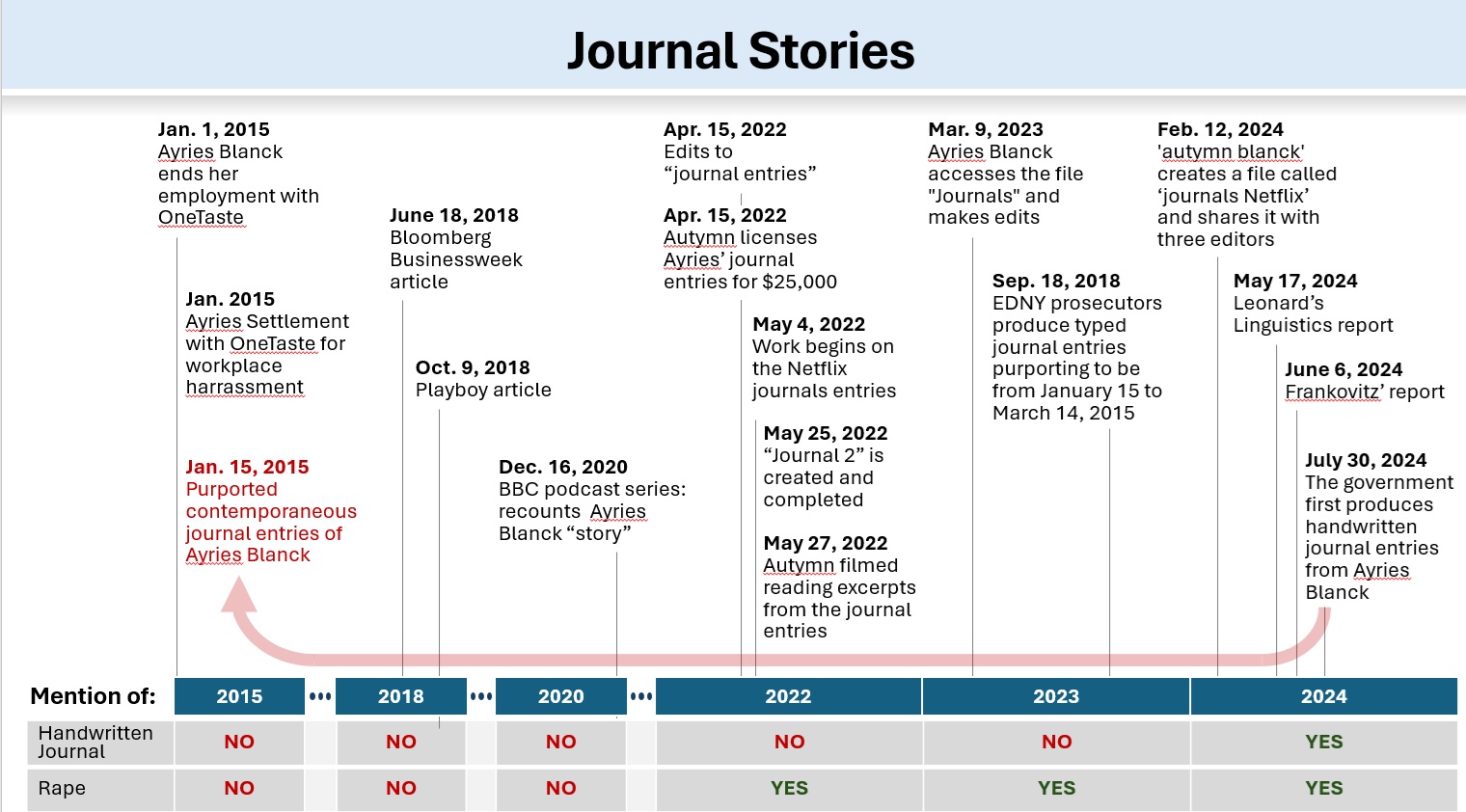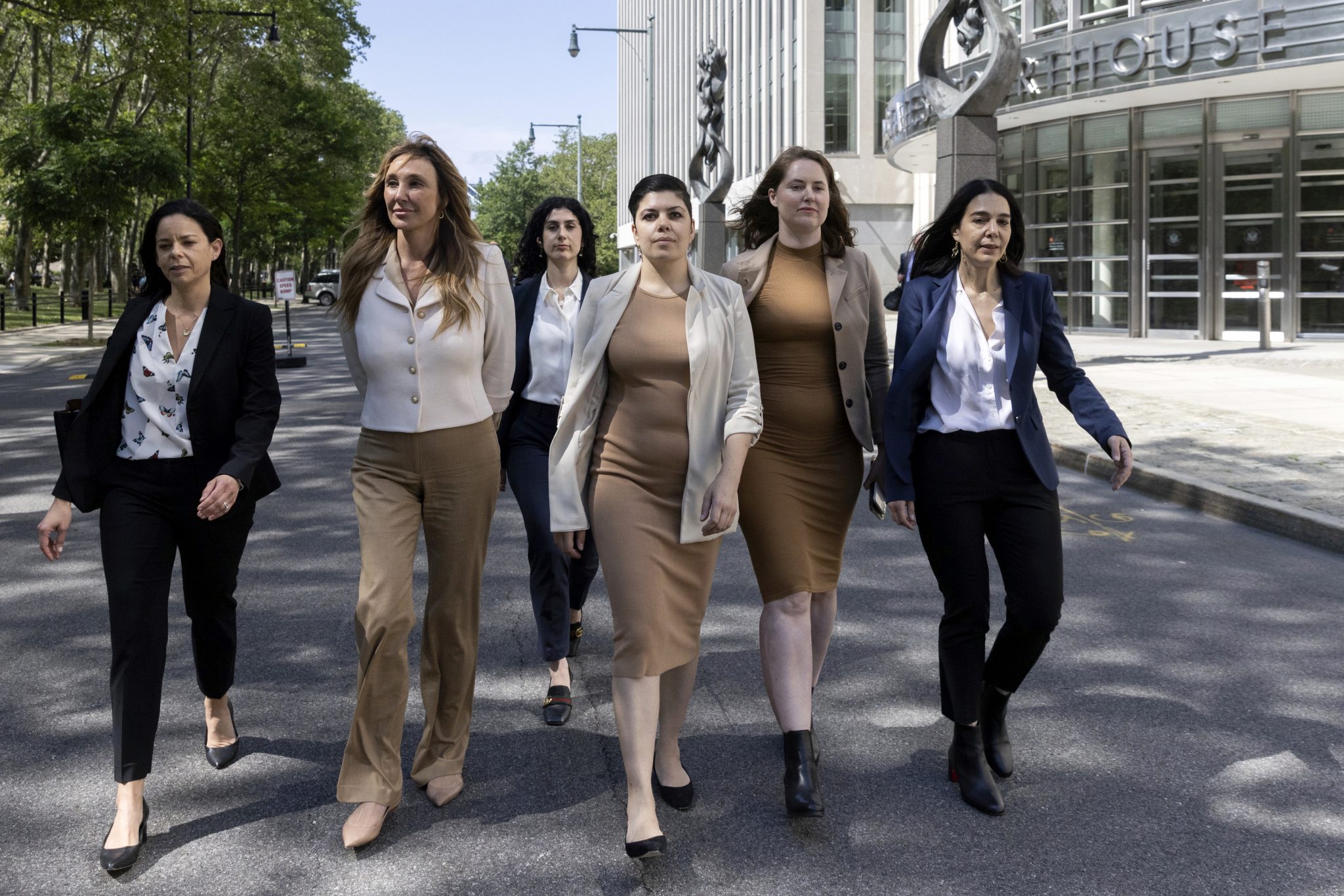In a high-stakes courtroom battle in Los Angeles Superior Court that occurred November 6th, 2024, Judge Rupert Byrdsong is holding the reins on a complex civil case involving OneTaste, the controversial wellness company, and principal antagonists, including Ayries and Autym Blanck. This case, intertwined with an active federal criminal investigation in New York, has exposed allegations of manipulated evidence, governmental overreach, and deep-seated disputes over document authenticity.

At the heart of the case are journals purportedly documenting Ayries Blanck’s experiences, which have been central to a Netflix documentary, “Orgasm Inc.”—a film that cast a critical spotlight on OneTaste’s practices. However, forensic analysis of the journals has raised disturbing questions about their authenticity, suggesting extensive revisions and edits, allegedly altering their original content. OneTaste’s legal team asserts that the journals have undergone at least 54 major and 500 minor modifications, casting doubt on the documents’ legitimacy. The revelation that the journals may have been significantly altered raises serious concerns about potential manipulation of the narrative and evidence.
In the courtroom Wednesday, Judge Byrdsong expressed frustration with the defense’s delay tactics, which include assertions of attorney-client privilege and work product protection to block the disclosure of key documents. Despite these claims, Judge Byrdsong has ordered an in-camera review, where he will privately examine the contested materials to determine what should be turned over to OneTaste. His decision underscores his commitment to transparency and accountability, even in the face of resistance from defense counsel who argue that these requests are intrusive. Judge Byrdsong’s stance reflects his intent to see the facts, unfiltered, and his warning of potential sanctions signals his determination to hold parties accountable for obstructive maneuvers.
Further complicating the matter, Los Angeles court records reveal that FBI Agent Elliot McGinnis, a leading investigator in the New York criminal case, allegedly advised Autym Blanck to hide the journals from OneTaste by sending them directly to him. These actions, coupled with reports that the FBI agent instructed the deletion of evidence, have fueled OneTaste’s allegations that federal authorities are manipulating evidence to support criminal charges against company founders Nicole Daedone and Rachel Cherwitz. Judge Byrdsong ordered the FBI to return the journals to Autym Blanck, who is now required to hand them over to OneTaste, a ruling seen as a victory for transparency amid an ongoing clash over disclosure obligations.
Adding another layer of intrigue, OneTaste claims that these journals contain references to sources published years after the alleged journal entries, further challenging their authenticity. For instance, references to the *Post Traumatic Growth Handbook*, a book published years after the purported dates of the journals, suggest intentional alterations or even fabrications. This assertion not only calls into question the journals’ validity but also the ethics of relying on potentially fraudulent evidence in high-stakes legal battles.
Judge Byrdsong’s ruling to examine the journals himself highlights the complexity of balancing attorney-client privilege with the court’s obligation to scrutinize all relevant evidence. As the civil case moves forward in Los Angeles, it remains deeply connected to the federal criminal case in New York, where prosecutors have accused OneTaste of intimidating alleged victims through civil litigation. In a bold defense, OneTaste claims it has been the victim of a smear campaign and that the prosecution’s reliance on potentially fabricated journals threatens the integrity of both cases. With significant financial interests and reputations on the line, both sides are entrenched in a bitter fight that could have far-reaching implications.
In this battle of legal principles, evidence authenticity, and public perception, Judge Byrdsong’s role as a decisive arbiter could set a precedent in how courts handle disputes involving disputed evidence in cases where civil and criminal issues intersect. The case against OneTaste, with its mix of allegations, public interest, and questions of prosecutorial conduct, illustrates the complex intersection of justice, truth, and media scrutiny.

